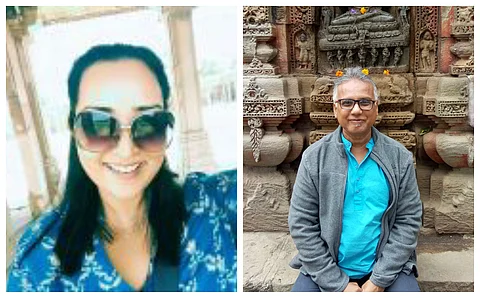

The way Social Sciences is taught in schools truly needs a makeover. This fact was re-emphasised when we spoke to Jitu Mishra. And how would he know, you ask? Mishra, who pursued his MA in Archaeology from Deccan College, Pune, has had the chance to travel to the interiors of states like Madhya Pradesh, Rajasthan, Gujarat, Karnataka and more. He not only tried to understand their people and culture but in the bargain, understood a lot about how Social Sciences is taught, as well. He worked with Ahmedabad-based Educational Initiatives and also with Wipro to conduct several teacher training workshops in Gujarat and other states in schools like Basant Valley School, Delhi Public School, Bengaluru and so on.
The objective was to teach them engaging ways of taking Social Science lessons in classrooms. “The problem remains that a lot of importance is given to memorising dates and names of kings, the focus is always on political and dynastic history,” says Mishra, who was born in Paralakhemundi, the town in Southern Odisha which shares its border with Andhra Pradesh. “They should be taught the history of common people and how ideas came about, otherwise, how will they find it relevant to study all that in today’s context?” rightly asks Mishra. He has even come out with booklets, like the one on Ahmedabad Islamic Heritage, just to generate interest. This despite the fact that he had no funds.
Jitu Mishra and Co-founder Shailaja Shah together started Virasat-E-Hind Foundation and registered it in the year 2016. They also received seed funding from Wipro and in May 2018, Mishra shifted back to Odisha, more particularly to Bhubaneswar. “I’ve been living outside Odisha for so long, I wanted to something for my state too,” says the 48-year-old. Speaking about the blog associated with the foundation, he says, “It is all about connecting people. When one thinks of heritage, they tend to think about monuments, but we believe that heritage is a way of life,” says Mishra. Last year, they managed to touch 38,000 views, double the amount they garnered in the previous year. Currently, they are exploring the idea of community-driven tourism, wherein, people will interact with community members and explore the stories of their history.
What troubles Shailaja Shah, Co-founders of VEHF, is that people are not proud of their heritage and a passive approach is adopted towards studying it. “After all, History and heritage is the collected study of human intelligence and how it has evolved over time,” says the alumna of Parson School of Design. She gives us the example of water management systems and how important it is to understand what has failed in the past locally instead of blindly copying global trends. She proposes a dual approach to History, both linear and nonlinear. “We all need to remember that History teaches us about all that has happened,” she says.
Speaking about Social Sciences and the way it is taught in schools, Mishra says that non-availability of teachers also contributes to this factor, even in international schools. He shares how he was disheartened to see that even International Board teachers did not quite understand the methodology of teaching History. There are no proper resources, either books (plenty for kids, but what about high school children?) or television channels, like National Geographic, BBC and so on. Not only are students hardly opting for higher education in this subject, but parents too are of the opinion that there is no career after pursuing History. “We need to have workshops for parents as well to explain how History can even help with careers like jewellery design, where a student can refer to notes about how ornaments were designed back in the day,” he explains. They remain positive that they can help ease the way for History to have a better future.
For more on them, click on blogvirasatehind.com
